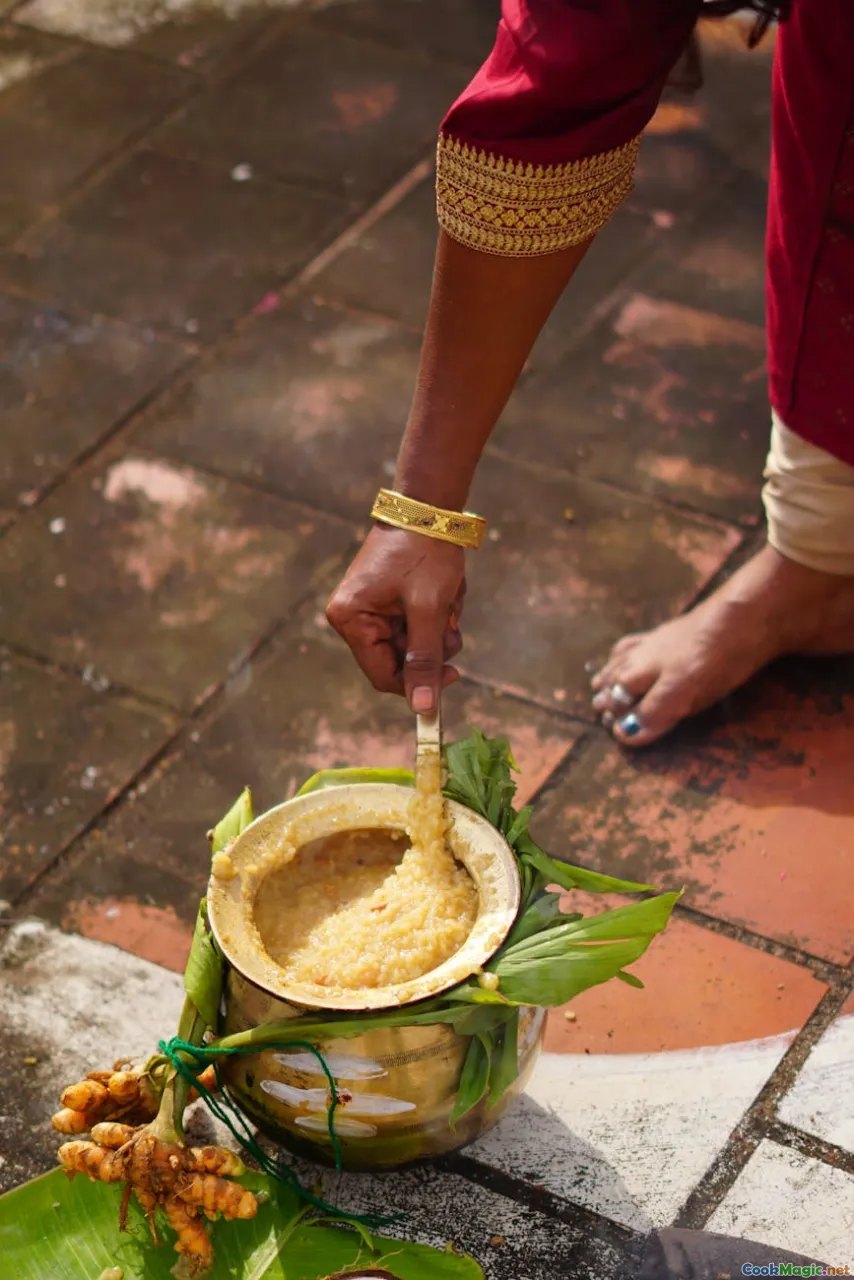South Indian Pongal Festivals and Sweet Rice Rituals
8 min read Explore the vibrant traditions of South Indian Pongal festivals and the sacred rituals of sweet rice, celebrating harvest, gratitude, and cultural heritage. April 20, 2025 02:00
South Indian Pongal Festivals and Sweet Rice Rituals
Introduction: A Harvest Celebration Steeped in Tradition
Imagine waking up to the smell of freshly harvested rice, the air filled with the warm aroma of spices, and the vibrant colors of turmeric and jaggery adorning every household. South India’s Pongal festival is not just a celebration of the harvest season; it’s a soulful tribute to nature’s bounty and the divine forces that sustain life.
Pongal, celebrated predominantly in Tamil Nadu, Andhra Pradesh, Karnataka, and parts of Kerala, marks the arrival of winter and the beginning of a new agricultural cycle. It’s a festival that beautifully marries food, spirituality, and community, creating a sensory tapestry that stays etched in memory long after the festivities end. Central to this celebration are the traditional dishes of Pongal—both the savory and sweet varieties—that symbolize gratitude, prosperity, and abundance.
In this article, we delve into the rich cultural tapestry of South Indian Pongal festivals and explore the sacred rituals surrounding the beloved sweet rice, revealing the stories, symbolism, and culinary artistry that make this festival truly special.
The Cultural and Historical Significance of Pongal
Origins and Evolution
The word Pongal in Tamil means “boil over,” symbolizing prosperity and abundance. Historically, Pongal dates back thousands of years, rooted in agrarian practices where farmers expressed gratitude for the harvest. It is closely linked to the Tamil solar calendar, usually celebrated over four days in mid-January, coinciding with the end of winter and the beginning of longer days.
Significance of the Festival
More than a harvest festival, Pongal is a spiritual offering—a way for people to thank the Sun God (Surya), the Earth (Bhumi), and farm animals that contribute to agriculture. The festival emphasizes gratitude, renewal, and community bonding, transcending mere food rituals to embody collective hopes for prosperity.
The Rituals and Celebrations
Preparations and Decorations
As the festival approaches, households are cleaned and decorated with rangoli — intricate patterns made with colored powders, rice, and flower petals. Homes are adorned with mango leaves and banana plants, symbolizing fertility and auspiciousness.
The Pooja and Offerings
On the day of Pongal, families perform a special puja (prayer ritual) dedicated to Surya, seeking his blessings for a bountiful year ahead. Sacred herbs, flowers, and sweets are offered at the altar, and traditional songs and dances fill the air.
The Pongal Dish: A Culinary Marvel
The centerpiece of the festival is the preparation of Pongal, a hearty dish made from freshly harvested rice, yellow split gram (moong dal), jaggery, and spices. This dish is cooked in a clay pot, symbolizing humility and respect for the earth.
The cooking process itself is a communal event, often involving children and elders alike, stirring the bubbling mixture with enthusiasm and singing folk songs.
The Sweet Rice Rituals: From Pongal to Prasadam
The Making of Sweet Pongal
Sweet Pongal, also known as Chakkara Pongal, is a luscious, comforting dish that embodies the festival’s spirit of gratitude. Its rich, golden hue is a visual delight, shimmering with the gloss of ghee and the caramelized aroma of jaggery.
Ingredients and Technique
- Rice and Moong Dal: The base, cooked with water until soft and fluffy.
- Jaggery: Melted to form a syrup, infused with cardamom for aromatic depth.
- Ghee: Generously poured to add richness and shine.
- Garnishes: Cashews, raisins, and sometimes shredded coconut for texture and flavor.
Cooking sweet Pongal involves patience and precision, as the rice and dal are simmered until creamy and thick, then sweetened and flavored. The final dish is served hot, often garnished with fried nuts and coconut flakes.
Ritual Significance
Sharing sweet Pongal symbolizes sharing prosperity and joy. It is often offered as prasadam (blessed food) in temples and distributed among neighbors, fostering a sense of community and gratitude.
Sweet Rice as a Cultural Symbol
The act of preparing and sharing sweet rice during Pongal is more than culinary; it’s a ritual of thanksgiving. It reflects the deep-rooted Indian belief that food is sacred and that sharing it sustains social bonds.
Personal Reflections and Cultural Insights
Growing up in Tamil Nadu, I remember the excitement of Pongal mornings—tasting the freshly cooked sweet rice, the crackling sound of the sugar and ghee melding in the pot, and the sight of colorful kolams brightening every doorstep. The festival was a time of unity, where elders imparted stories of harvest and prosperity, and children joyfully participated in decorating and cooking.
What struck me most was how the aroma of sweet Pongal could evoke a sense of homecoming, a connection to ancestors, and hope for the future. It’s a reminder that food, especially during festivals, is a vessel of tradition, love, and gratitude.
Modern Celebrations and Global Reach
Today, Pongal has transcended regional boundaries, celebrated by Tamils worldwide and embraced by diverse communities. In urban settings, elaborate feasts, cultural programs, and community gatherings continue to honor the festival’s essence.
Innovative culinary twists—like vegan variations or fusion desserts inspired by Pongal—are emerging, yet the core rituals of gratitude and sharing remain unchanged.
Conclusion: An Ode to Fertility, Gratitude, and Community
The South Indian Pongal festival, with its rich tapestry of rituals and flavors, is a testament to human resilience and reverence for nature’s cycles. The sweet rice rituals, in particular, symbolize more than just culinary delight—they embody a collective hope for abundance and a heartfelt thank you for the earth’s generosity.
As you savor a bowl of sweet Pongal, remember that each spoonful is steeped in generations of tradition, love, and gratitude—a delicious reminder that in celebrating food, we celebrate life itself.
May your festivals be filled with the warmth of community, the aroma of festive dishes, and the joy of shared gratitude.









